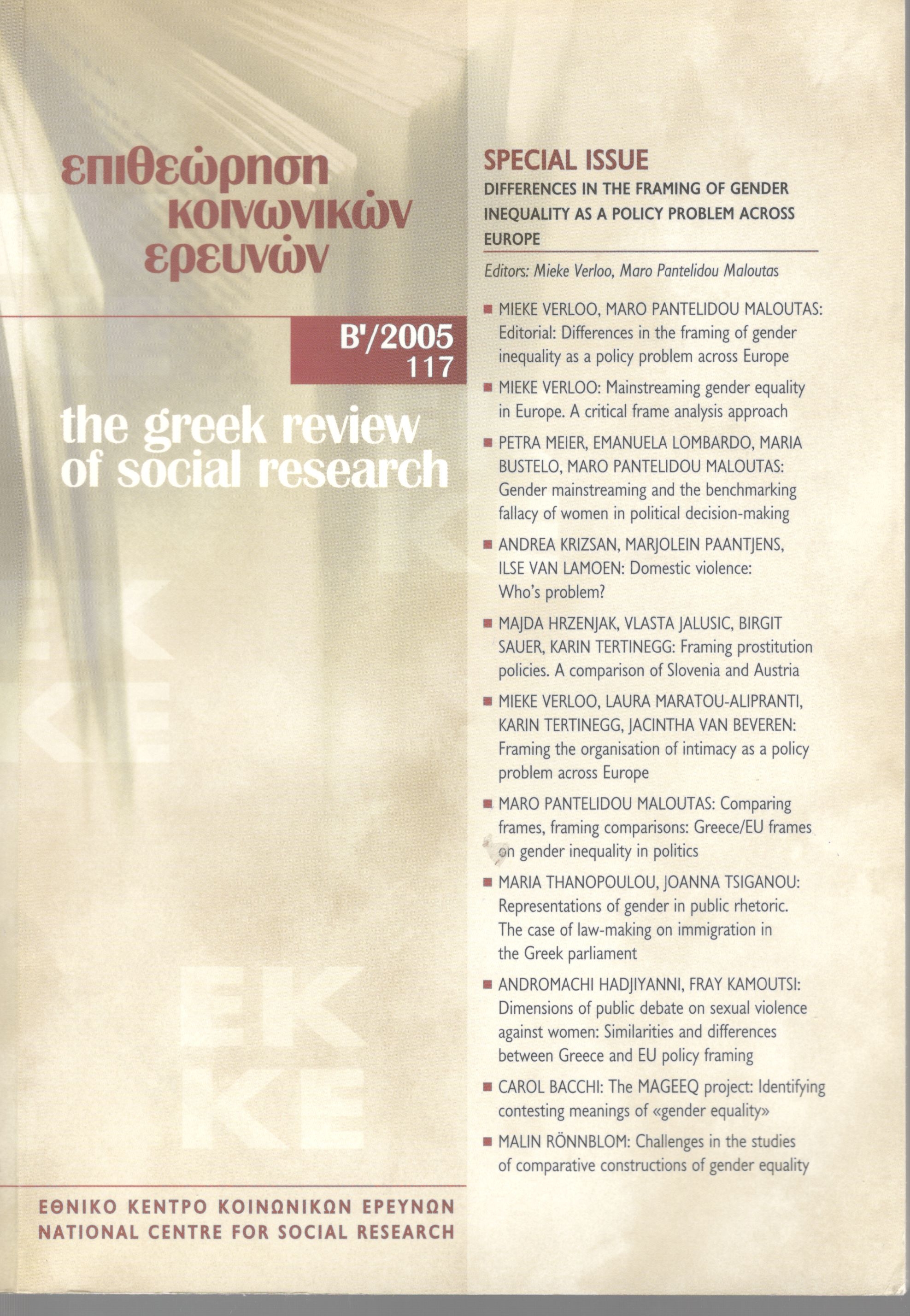Comparing frames, framing comparisons: Greece/EU frames on gender inequality in politics
Abstract
This article intends to present the main similarities and differences between Greece and the EU in respect to the framing of gender inequality in political decision making as a policy issue, based on the ways that the problem is diagnosed. It also aims at the formulation of a hypothesis which argues that beyond the above similarities and differences, which may tint in a different colour measures and policies showing one case more gender sensitive or more «traditional» than the other, there exists one basic underlying similarity, relative to the conceptualisation of the notion of gender it-self, which frames all gender related policies, but also their comparison. A framing which cannot but show the existence of inherent boundaries to the out-come of gender mainstreaming as a strategy, since the way we conceptualise gender is determining for the degree to which the promoted policies are disruptive or legitimating in the end, of the existing gender order.
Article Details
- How to Cite
-
Maloutas, M. P. (2016). Comparing frames, framing comparisons: Greece/EU frames on gender inequality in politics. The Greek Review of Social Research, 117, 149–168. https://doi.org/10.12681/grsr.9561
- Section
- Articles

This work is licensed under a Creative Commons Attribution-NonCommercial 4.0 International License.
Authors who publish with this journal agree to the following terms:
- Authors retain copyright and grant the journal right of first publication with the work simultaneously licensed under a Creative Commons Attribution Non-Commercial License that allows others to share the work with an acknowledgement of the work's authorship and initial publication in this journal.
- Authors are able to enter into separate, additional contractual arrangements for the non-exclusive distribution of the journal's published version of the work (e.g. post it to an institutional repository or publish it in a book), with an acknowledgement of its initial publication in this journal.
- Authors are permitted and encouraged to post their work online (preferably in institutional repositories or on their website) prior to and during the submission process, as it can lead to productive exchanges, as well as earlier and greater citation of published work (See The Effect of Open Access).



